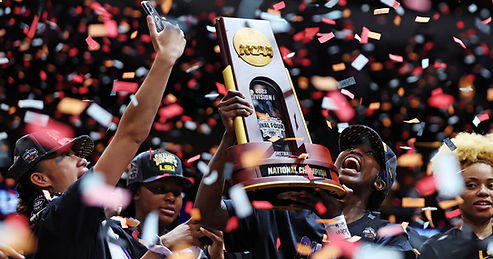By: Robert Wei
Do you love college sports? If you do, then you definitely heard of the NCAA but what about their new deal? For more than twenty years ago, college sports lovers from sports like basketball, baseball, and softball have discovered the site of all NCAA broadcasted matches, on the ESPN spectrum. An example of how comfortable the NCAA and ESPN were with their partnership came in 2011, when they signed a 13-year, $500 million deal without the NCAA taking the rights to their market. The deal will expire soon, in 2024, so it is very inevitable that the next marketing and media rights deal for all the 31 college and university championships will look much different from the current one, which has been widely criticized as undervalued, particularly for one of its most popular events, the Division I women’s basketball tournament.
Last week, Charlie Baker, the new NCAA president, pointed out that at a social discussion on college sports, “we dramatically underperform across a whole bunch of other revenue-raising opportunities.” The increase in interest in women’s basketball has built up pressure on the NCAA to sell those marketing rights by themselves instead of selling them with other championships. Doing that could earn about $100 million annually, says one marketer. This could risk leaving other sports on lower-profile platforms.
Additionally, the NCAA declined to provide Baker or any other official for an interview. They stated in a statement that they are open to innovative ideas, including the possibility of standalone contracts, to generate revenue and support student-athletes and the growth of all sports, including women’s basketball. To assist with negotiations, the NCAA has enlisted the services of Endeavor, a global sports media company. The negotiations have yet to begin, but Baker expects a rights deal to be finalized by the end of the year. According to Chris Bevilacqua, a sports media analyst who previously advised the NCAA on media rights, the NCAA is a highly political organization, and the focus of politics surrounding these deals has significantly changed over the past ten, fifteen, or twenty years. N.C.A.A. officials argue that they keep a significant influence in Washington and are dedicated to implementing new regulations that would enable players to have greater financial potential, mostly through popular social media platforms where numerous athletes have reasonably big fan bases.
Progress has been clumsy and slow because of the complicated structure of the association and concerns are shown by the Justice Department during the final days of the Trump administration regarding the N.C.A.A.’s proposed plans.











